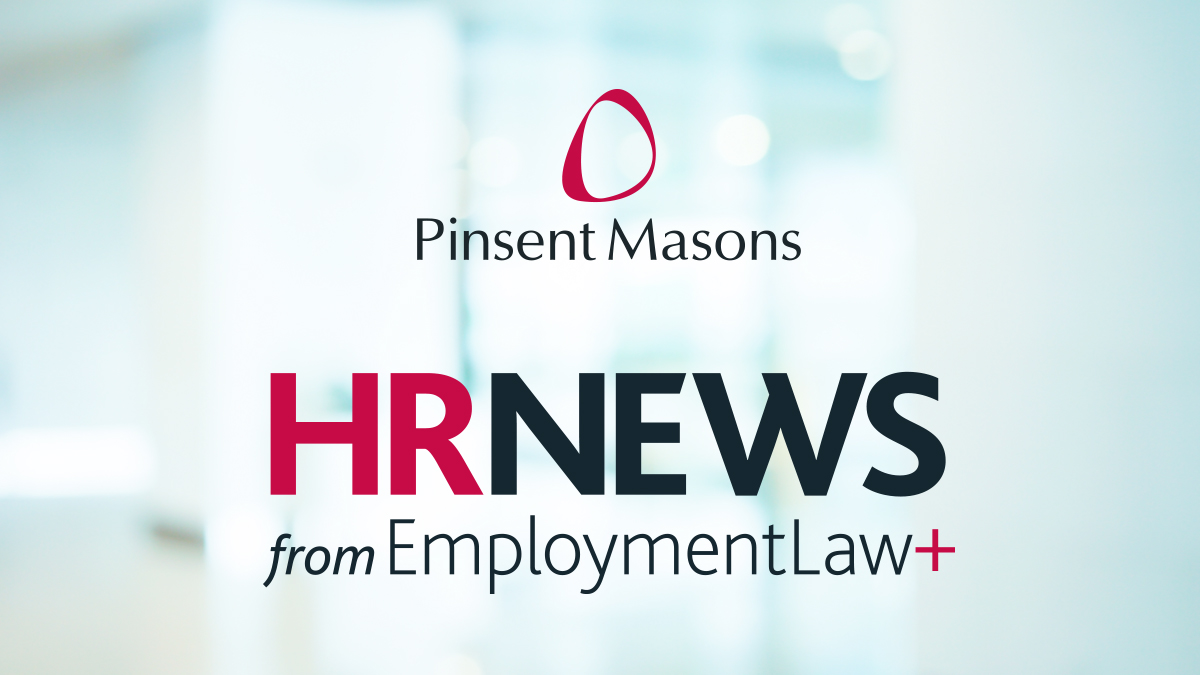The Home Office has made changes to the rules for employers who sponsor workers from overseas. The change is part of the government’s compliance crackdown amid concerns over debt-based employment practices in some sectors.
The new rule, which came into force on 9 April, prohibits sponsors from recouping immigration fees and associated administrative costs from sponsored workers. It comes with a requirement affecting how salary is calculated for Skilled Worker visa applications and means that certain deductions from salary – including repayments for immigration costs – must now be subtracted when assessing whether the salary meets the minimum threshold. For sponsors, this is a key change to understand because getting it wrong could affect your ability to hold a sponsor licence. We’ll speak to an immigration expert about that risk and how to avoid it.
The background to this is the updated guidance issued at the end of last year, which made clear that sponsorship costs, such as the sponsor licence fee and the Certificate of Sponsorship, must not be passed on to workers. That guidance came into force for certificates issued on or after 31 December and was designed to stop workers being tied into unfair clawback arrangements that left them in debt or unable to leave their job.
What’s changed now is that those principles have been written into the Immigration Rules. From 9 April, any deductions from salary relating to immigration costs, such as visa application fees or the immigration health surcharge, must be removed from the salary when calculating whether the worker qualifies for sponsorship.
That point - the impact on salary - is the key point to understand so let’s hear more on that. Maria Gravelle is an immigration expert and earlier she joined me by video-link from Edinburgh to discuss it:
Maria Gravelle: “So the actual rules on what you can and cannot recoup from a sponsored worker haven't changed that significantly. What has changed is the impact of that on salary. It has always been the case that a sponsor is responsible for paying the Certificate of Sponsorship fee, which has just increased to £525, as well as any immigration skills charge that is payable on the sponsorship, and the price of that will depend on what size and organisation you are. Those fees have always been the responsibility of the organisation and there has always been a prohibition on recouping those fees from a sponsored worker and it’s not just a prohibition, it's a prohibition on threat of revocation of your sponsor licence. So it's a very serious breach from the Home Office’s perspective, and that has been in the sponsorship guidance for quite a number of years. With the application fee and the immigration health surcharge - these are the fees that are paid when the application form is submitted - so the actual visa application form is submitted online, and those two fees are payable at that stage. These fees can be commercially agreed between the worker and the organisation who is sponsoring them. Some sponsors take the view that they want to support their employees with these fees, others take the view that they want employees to pay for those themselves and there's no right or wrong answer, as long as you're acting reasonably in the circumstances. It’s worth noting things like the duration of sponsorship will impact how high those fees are so if you're insisting that a person is being sponsored for five years, which is the maximum for skilled workers, and they come to you and say, well, actually, I can't afford to pay five years’ worth of immigration health surcharge for me and my family, it might be quite unreasonable in that situation to stick to the five years unless you had some sort of commercial reason for that decision. Similarly with things like priority fees. If it's the worker who is saying I want to use the priority service that is absolutely fine for them to pay for that themselves, but if it's the organisation who is insisting upon that, again, it might be construed as quite unreasonable to expect a worker to pay something that ultimately would be the decision of the organisation, and the same would go for legal fees. So as it stands, Certificates of Sponsorship and immigration skills charge must be paid by the organisation, everything else, application fees, immigration health surcharge, priority fees, can be split with the worker depending on the circumstances. What the Home Office have done, though, is they have said if that cost is being split with the worker, you have to deduct that from the salary that you are offering them in terms of what you're able to use to meet the threshold for sponsorship. So, let's say the organisation is paying £5,000 worth of visa fees for a worker and they have an agreement with that worker that the worker will pay it back to them through salary deductions. Let's say that they sponsored for two years. Well, that £5,000 that the worker will pay back, they will have to deduct that from the salary that they are offering the worker for the purposes of meeting sponsorship thresholds. So that would be £2,500 per year deduction, and they would only be able to use the deducted salary when assigning the Certificate of Sponsorship. Now, in some cases, if you've got somebody who's right on the cusp of the salary that they need for sponsorship, that is potentially going to make them ineligible. So it's something that sponsors, I think, particularly for junior employees, are going to have to be quite careful about.”
Joe Glavina: “We hear a lot about Home Office ramping up compliance visits and ramping up scrutiny levels and, as I understand it, that includes checking for clawbacks or financial ties to employment. Is that the case?”
Maria Gravelle: “Yes, it's very possible. It’s hard sometimes to know how they enforce some of the rules that they introduce but anything that goes through a PAYE system is very, very easy for them to detect. It very clearly states in the guidance that they are able to check HMRC records. It's a very easy way for them to detect if you're not paying your worker enough. The thing with salary deductions is that they will be visible on your PAYE system and so it’s something that is very, very easy for the Home Office to find out about. In the event of a compliance visit, it’s also possible that they would be asking for copies of any visa fee, clawback agreements. Certainly, if that is something that is in your contract of employment, or it forms part of your contract of employment, that contract is something that you absolutely should be having on file for all of your sponsored workers anyway. So if that were missing, that would be a compliance breach in itself. So, yes, it's very important that, as part of the wider document retention package that sponsors have for their sponsored workers, any copies of visa clawback agreements are included in that and that they are compliant with the rules in force at the time. Now, this was introduced quite recently, it’s not something that's going to retroactively apply to people who were sponsored before it was introduced, but for any new sponsorship cases going forward if you do have a visa fee clawback agreement that is going to require the worker to repay you for whatever visa fees you might have paid, then you need to make sure that that has been taken into account in their total salary.”
Given the complexity of the new rule and the risk facing sponsors who get it wrong - possible revocation of the sponsor licence - a number of clients have been asking our immigration team for help. If you would like help then please do contact Maria - her details are on the screen - or alternatively you can contact your usual Pinsent Masons adviser.
Out-Law / Your Daily Need-To-Know
Salary deduction rule change risks sponsor licence breaches for UK employers
08 May 2025, 8:43 am

-
Transcript

